e-Masters in Power Sector Regulation, Economics and Finance
Prepare Yourself for The Changing Face of India's Power Sector


- No GATE Score required
- IIT Kanpur Alumni Status
* Selection test differs for every programme
The program aims to provide a conceptual understanding of power sector regulation from an engineering, economic and regulatory perspective. It presents a detailed perspective of the power sector, with regulations building on fundamental economic principles. It focuses on developing insights into the development of electricity markets in India and discussing the challenges and way ahead. Further, the regulatory process in the power sector is explored using the prevailing and national and international best practices. The content explains the regulatory process considering the applicable engineering, economic, legal, and environmental viewpoints. The modules will also have a lecture by leading industry experts to help participants understand the power sector’s challenges.
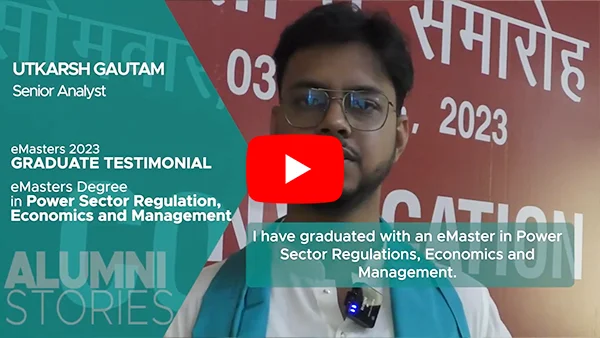 Utkarsh Gautam
Utkarsh Gautam 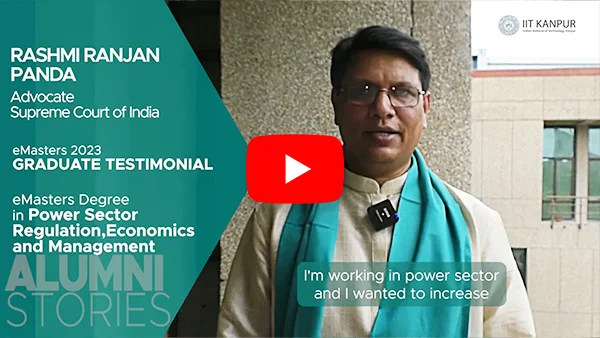 Rashmi Ranjan
Rashmi Ranjan 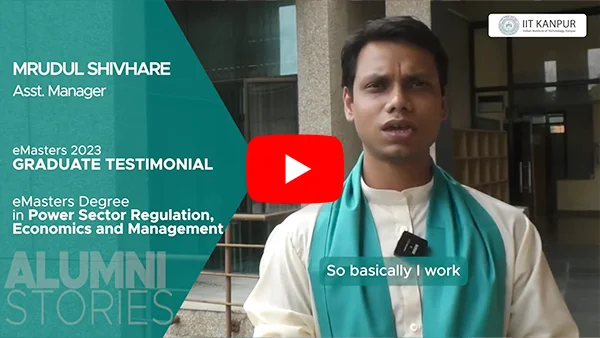 Mrudul Shivhare
Mrudul Shivhare 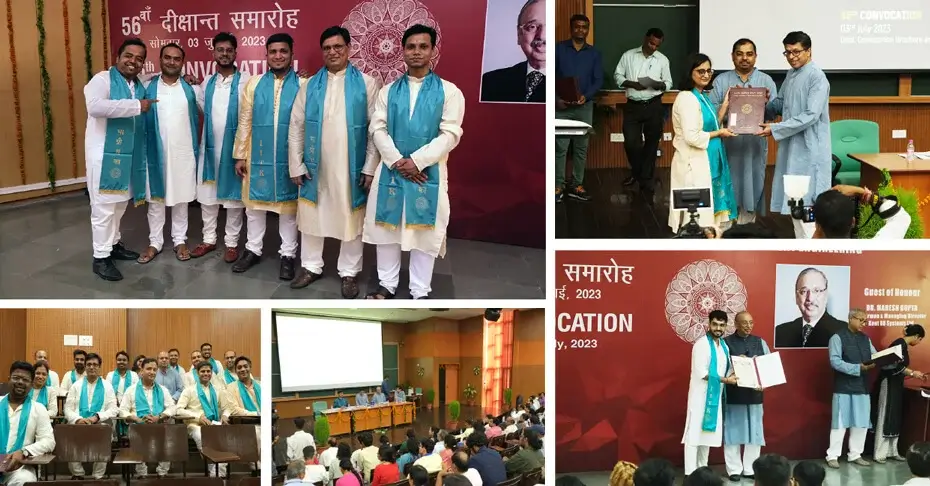
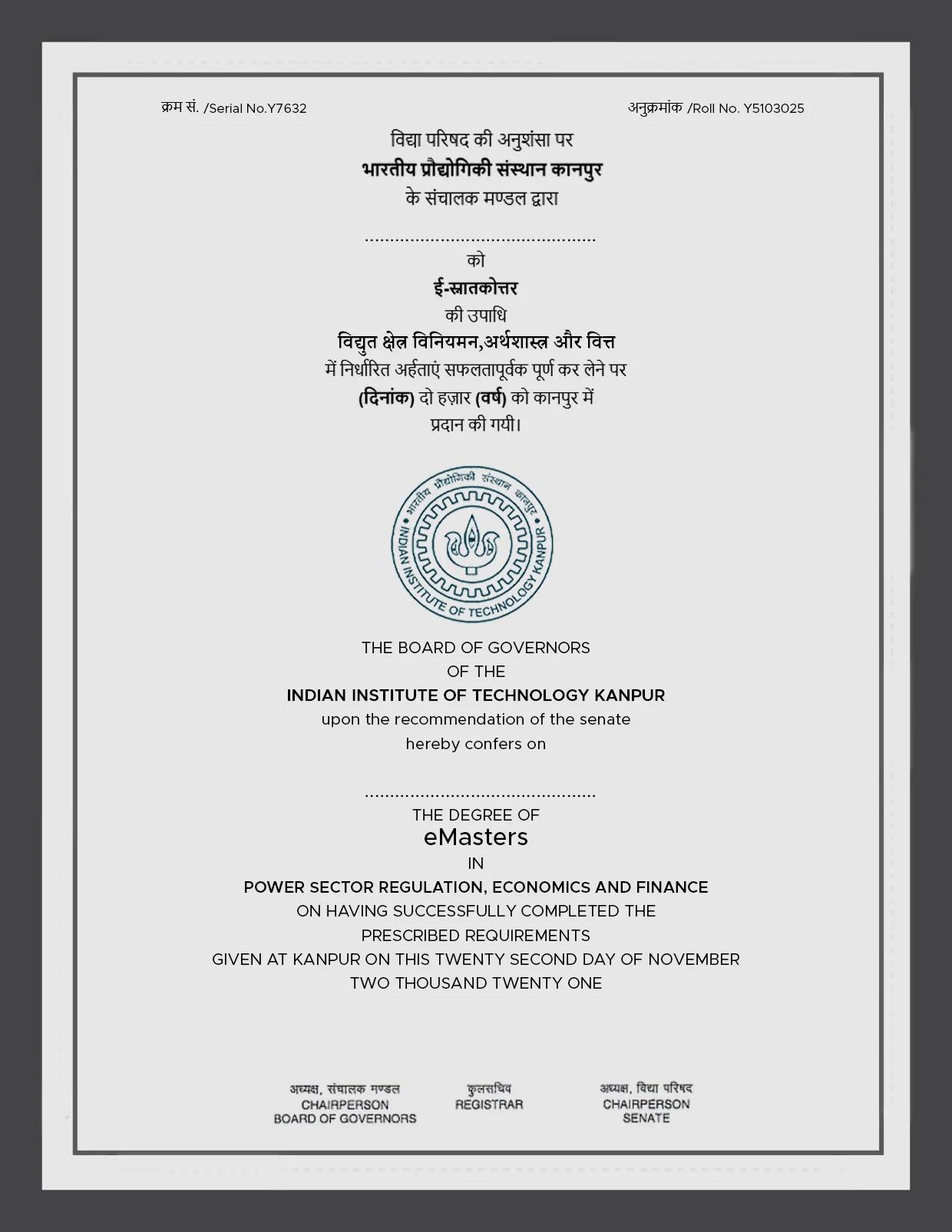
Learn from the experts working at the forefront of cutting-edge research in the Power Sector Regulation,
Economics and Finance.
 Anoop Singh
Anoop Singh  Devlina Chatterjee
Devlina Chatterjee Suman Saurabh
Suman Saurabh Ankush Sharma
Ankush Sharma S. C. Srivastava
S. C. Srivastava Sri Niwas Singh
Sri Niwas Singh Saikat Chakrabarti
Saikat Chakrabarti Abheejeet Mohapatra
Abheejeet Mohapatra Deep Mukherjee
Deep Mukherjee Mousami Prasad
Mousami Prasad Rajeev Jindal
Rajeev Jindal Subhankar Mukherjee
Subhankar Mukherjee Gururaj Mirle Vishwanath
Gururaj Mirle Vishwanath Prabodh Bajpai
Prabodh BajpaiFor Sector and International Experts, please refer to the below link
View the list
A well-researched real-world curriculum by IIT Kanpur’s subject matter experts that fosters hands-on learning and helps you master the desired capabilities by combining deep formal rigor and an intense practical approach.
Modules
eMasters in Power Sector Regulation, Economics and Finance has 12 core modules in total.
 Live Interactive Sessions
Live Interactive Sessions Projects
Projects  Online Examination
Online Examination Campus Visit
Campus Visit
 Application fee ₹1500 (to be paid during application submission)
Application fee ₹1500 (to be paid during application submission)
Fee structure for candidates opting to complete the program in 1 year.
| Details | Amount |
|---|---|
| Registration Fee To be paid within 1 week of selection |
₹40,000 |
| Admission Fee To be paid to complete enrollment |
₹1,60,000 |
| Module Fee To be paid at the beginning of every quarter based on no. of modules selected (Total 12 Modules) |
₹5,40,000 ₹45,000 per module |
| Quarter Fee* To be paid at the beginning of every quarter |
₹60,000 ₹15,000 per quarter |
| Total Fee | ₹8,00,000 |
*For every additional quarter, fees of Rs 15,000 will be applicable.
For Example
Candidates opting to complete the program in 5 quarters need to pay an additional fee of ₹15,000
Candidates opting to complete the program in 11 quarters need to pay an additional fee of ₹1,05,000
All other fees remain the same.
Fees paid are non-refundable(after a certain time period) and non-transferable.
Established in 1959 by the Government of India, Indian Institute of Technology Kanpur (IIT Kanpur) is a globally acclaimed university for world-class education and research in science, engineering, management and humanities. We aim to provide leadership in technological innovation for the growth of India.
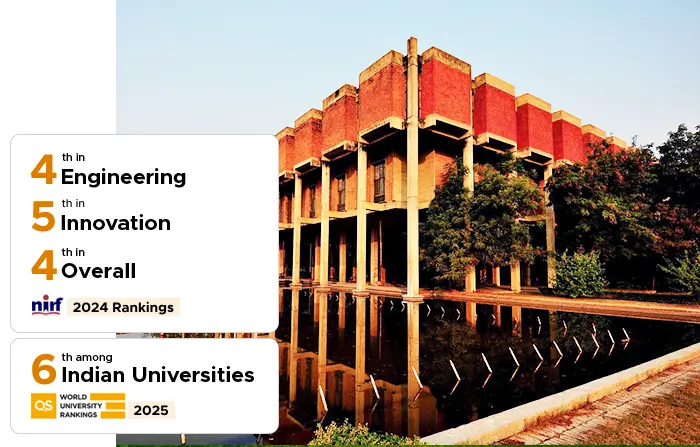
The eMasters Program by IIT Kanpur will be delivered on iPearl.ai, a State-of-the-Art digital learning platform, powered by TalentSprint. iPearl.ai, highly rated for its user experience, is a direct-to-device platform that works seamlessly on any internet-connected device and provides a single-sign on experience for all your learning needs including recorded videos, reading material, live interactive sessions, assignments, quizzes, discussion forums, virtual lounges and more.

| Quarter 1 | Module | Schedule |
|---|---|---|
| Module 1 | Fundamentals of economics, Accounting and Finance |
Saturday (11:00 am -12:00 pm) |
| Module 2 | Power Sector Reform and Regulation: Economic Principals and evolution | Sunday (9:30 am - 10:30 am) |
| Module 3 | Power System Operation and ancillary services | Saturday (9:30 am - 10:30 am) |